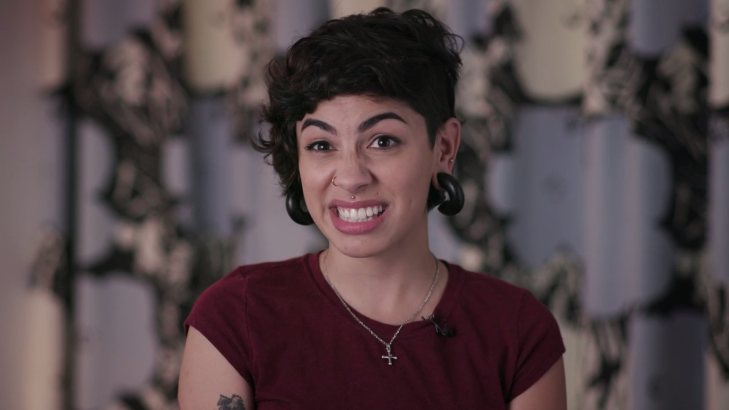
The editors at Everyday Feminism are calling for “gender neural language for abortion access” because, apparently, men can have abortions too.
According to Everyday Feminism, abortion is not just an issue for women. The editors claim, “the truth is that there are transgender, non-binary, and gender non-conforming people who need abortion access, too – and society’s assumptions about gender are making that really difficult.”
In order to justify their argument, the editors include a video by the All Access Coalition to highlight the alleged importance of creating “more inclusive access to reproductive health services.”
Jack Qu’emi, who introduces herself in the video as being trans, disabled, Afro-Latinx, non-binary, yet femme, states, “Not everybody who has a functioning uterus identifies as a woman.”
“Some trans people need access to abortion,” she insists. “Some trans people have periods. Some trans people can get pregnant. Some trans people need a mammogram.”
Qu’emi details her own experience having an abortion as an alleged trans person. Despite physically presenting as a woman, not changing anything about her outward appearance to look like a man, and despite having been pregnant, Qu’emi claims she was "misgendered" while having an abortion.
“I had an abortion when I was 20. I was really isolated at the time. I didn’t have access to a community. People at the clinic constantly read me as a woman and called me ‘ma’am,’ ‘she,’ ‘miss,’” Qu'emi complained.
“Having an abortion is tough enough without having to navigate constant misgendering. It’s like being slapped every two seconds,” she notes.
Qu’emi goes on to condemn the entire medical community for not being “friendly to gender-variant people.”
“Medical situations in general are not friendly to gender-variant people,” she claims. “Even the forms, it says gender ‘m/f.’ Okay, I see what you mean, but you wrote ‘gender,’ not ‘sex.’ And if I’m intersex, what do I put? There’s no option for that.”
She ends her tirade by claiming, “Language, I think, is by far the biggest obstacle in terms of making it more gender inclusive for trans and gender non-conforming communities. The problem, as I see it, is that we aren’t being mindful of each other. We aren’t being mindful of where others are coming from. So if we change our language, just to something gender-neutral, we can invite and make these kinds of experiences so much easier for people who are of marginalized communities.”
